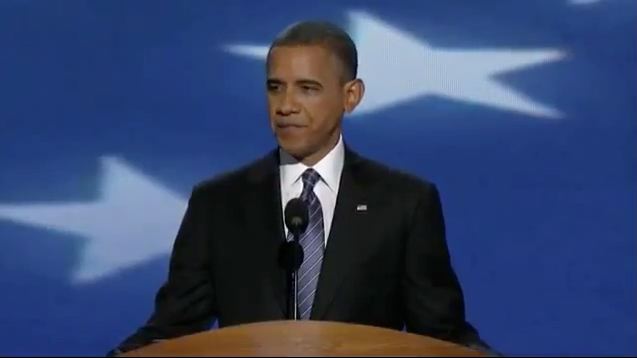OpEds: Flim Flam Substitutes for Debate
So-called presidential debates are well-rehearsed, prescripted theater. Theater of the absurd best describes them. Election outcomes aren’t influenced. They don’t edify. They insult. Wednesday night was no exception. Even some media scoundrels were underwhelmed. At least one was honest as far as his editors let him. London Guardian contributor Charles Ferguson headlined “America’s duopoly of money in politics and manipulation of public opinion,” saying:
“Behind the divisiveness lies a deeper bipartisan consensus in which donors own democracy and there are no votes (for) reform.”
“Presidential campaigns aren’t where you look for honest, serious” policy discussions. Candidates prefer “slogans.” They steer clear of controversy.
“(S)ometimes, as with George W. Bush, we also get a moron.” This election is different. We’re “explicitly seeing the effects of America’s new political duopoly” up close and personal.
It’s not new. At most it’s repackaged to look that way, but not to observers who know how things in America work.
Obama and Romney “completely (avoided or remained) dishonest about (key) economic issues.” The bizarre was also evident. A Republican attacked a Democrat on unemployment. He, in turn, said give us more time. We’ll fix things. Obama’s first term was spent wrecking them. Neither candidate plans undoing decades of damage.
Both know the score but won’t say so. They also claim they’ll “reform Washington.” Neither means it.
They avoided serious issues begging for discussion. They include “causes of the financial crisis; the lack of prosecution of banks and bankers; sharply rising inequality in educational opportunity, income and wealth (disparity)….the impact of industrialized food on” health and skyrocketing food and healthcare costs; budget deficits and national debt; disappearing jobs not being replaced, and war and peace.
How can what’s most important be omitted? How can either candidate claim he debated? Politics and honesty are mirror opposites. Both candidates ignore what most needs addressing. Obama “can win because he’s somewhat less bad, somewhat less utterly bankrupt, than the other guy. Welcome to America’s new and improved two-party system.” It’s the same one, just more corrupt.
Salon editor at large Joan Walsh [a regular liberal, ignoring the lies] said Obama was “subdued, deferential, (and) over-prepared.” Romney shook his “(E)tch-a-Sketch and lied his way through the entire debate with no challenge from moderator Jim Lehrer” or Obama.
The New York Times headlined “An Unhelpful Debate,” saying:
Wednesday night “sunk into an unenlightening recitation of tired talking points and mendacity.” Voters perhaps walked away saying a pox on both candidates.
Romney avoided discussing anti-populist policies he endorses. Obama failed to challenge the worst about him. He’s got plenty of his own crosses to bear.
Viewers weren’t helped by moderator Jim Lehrer’s pathetic performance. He never challenged either candidate on vital truths. Expect debates two and three to be painful repetitions of Wednesday night. [The lack of challenge from Lehrer —an establishmentarian to the hilt—fails to impress us, as he’s as much a media scoundrel as the rest, only perhaps more convinced of his nonexistent superiority.—Eds]
Why anyone bothers to watch shows the deplorable state of the US electorate. Most are uninformed, out of touch, and indifferent.
A Chicago Tribune editorial said Obama “skipped this debate. (He) slumped his shoulders, smiled mostly to himself, and for some reason kept staring mostly down.” Hope and change were gone. They never were there in the first place.
USA Today said both candidates “avoid(ed) reality in debate.” Key issues were unexamined.
The Washington Post said they “evaded the hard truths.” Canned talking points substituted. It didn’t surprise. It’s always that way.
Both candidates “studiously maintained the evasions and omissions at the heart of their policies. The debate was wonky (but not) honest.” Issues most important weren’t discussed.
Obama and Romney “were strikingly complicit in failing to confront the magnitude of the fiscal challenge the winner will face immediately. The overriding feature of the debate was a tacit conspiracy of avoidance.”
Russia Today (RT) called the evening “tepid.” Arguments and accusations heard before were repeated. Same old, same old doesn’t wash.
Domestic issues were stressed. Slogans and one-liners substituted for solutions. “(M)any Americans may well be confused as to what exactly the differences are between the two candidates.”
They’re in lockstep on issues mattering most. Overall, barely a dime’s worth of difference separates them. Duopoly power allows little wiggle room. What it says goes.
Alternative parties are excluded. RT quoted Ralph Nader telling Time magazine:
America’s “duopoly has every conceivable way to exclude and depress and harass a third party. Whether it’s ballot access. Whether it’s harassing petitioners on the street. Whether it’s excluding them from debates. Whether it’s not polling them.”
“And with a two-party, winner-take-all electoral system, it’s easy to enforce all those. Unlike multi-party Western countries where you have proportional representation, the voters (in America) know that if you get 10 per cent of the vote, you don’t get anything. Whereas in Germany, you get 10 per cent of the parliament.”
So voters say, ‘Let’s just vote for the least worst.” Half the electorate disses both sides and opts out.
Historian Gerald Horne told RT US voters lack alternatives. Party platforms and debates “exclude the critiques of the present dilemmas and problems that (American) people face, for example rising poverty, rising unemployment et cetera.”
Whether in office, campaigning or debating, rhetoric substitutes for commitment. The best from Obama was saying vote for me and I’ll try harder.
Press TV called his Wednesday night performance “weak.” Despite getting super-rich as a corporate predator, Romney ate his lunch. He dissed Obama’s economic policies.
They’re “not working. The proof of that is 23 million people out of work. The proof of that is 1 out of 6 people in poverty. (Wrong: one in two are or bordering on it according to Census data.) The proof of that is we’ve gone from 32 million on food stamps to 47 million on food stamps. The proof of that is that 50 percent of college graduates this year can’t find work.”
It’s hard arguing with truths. Too bad most others were excluded. Not a word on imperial lawlessness, permanent wars, $1.5 trillion spent annually on defense, everything related to it, homeland security, intelligence, and black budgets as far as the eye can see with estimates only on what’s in them.
What about banker bailouts, tens of billions in other corporate handouts, out-of-control corruption, a sham electoral process, and growing poverty at Great Depression levels!
What about past and planned domestic spending cuts when stimulus is urgently needed! What about tax cuts for corporations and rich elites when vital people needs go begging! What about bipartisan governance making America no fit place to live in and a threat to world peace!
What about holding politicians accountable when they lie and betray constituents that elected them! What about addressing issues mattering most and changing things! What about doing the right thing instead of same old, same old!
Priorities not discussed include ending imperial wars, downsizing America’s military, stimulating economic growth and creating jobs, holding criminal bankers and other corporate crooks accountable, addressing Depression level unemployment, homelessness, hunger, poverty, and overall human need no free society should tolerate.
What about fixing America’s broken infrastructure instead of waging wars and destroying it in one country after another! What about prioritizing populism instead of slash and burn budget cuts affecting ordinary people most!
What about giving government of, by, and for the people real meaning! What about doing what never was done before! What about making America beautiful instead of being hated for threatening humanity!
Don’t expect any of the above from Republicans and Democrats. Blackguards, scoundrels, scalawags, and menaces best describe them. Expect more of the same or worse post-election.
It doesn’t matter who wins. It’s the American way. It’s up to ordinary people to change things. They have to do it on their own. It won’t happen any other way.
Visit his blog site at sjlendman.blogspot.com and listen to cutting-edge discussions with distinguished guests on the Progressive Radio News Hour on the Progressive Radio Network Thursdays at 10AM US Central time and Saturdays and Sundays at noon. All programs are archived for easy listening.
http://www.progressiveradionetwork.com/the-progressive-news-hour
Let’s keep this award-winning site going!
| Yes, audiences applaud us. But do you?If yes, then buy us a beer. The wingnuts are falling over each other to make donations…to their causes. We, on the other hand, take our left media—the only media that speak for us— for granted. Don’t join that parade, and give today. Every dollar counts. |
|---|
| Use the DONATE button below or on the sidebar. And do the right thing. Even once a year. |
Use PayPal via the button below.
THANK YOU.
//











